Every person in Britain could be forced to sign up for a digital ID card after Emmanuel Macron demanded action to tackle the scourge of illegal working.
Sir Keir Starmer told the Cabinet he would be ‘exploring options’ around the concept as part of a wider package of reforms designed to make it harder for illegal migrants to live and work here.
Downing Street confirmed ministers are examining proposals for a digital ID scheme 15 years after the idea was abandoned following an outcry about the impact on civil liberties.
Under one option, anyone applying for a new job would be required to produce their digital ID to demonstrate that they have the right to live and work in the UK.
Similar provisions could also be introduced for those moving to new accommodation, making a benefit claim or accessing public services.
Labour ruled out ID cards as recently as July with Business Secretary Jonathan Reynolds saying the idea was ‘not our approach’.
But Sir Keir has been told by Mr Macron to address ‘pull factors’ attracting migrants to Britain in return for French help in stopping the boats. Allies of the French president have warned the UK’s lax rules make it an ‘El Dorado for migrants’.
Whitehall sources said former PM Tony Blair has also continued to push the idea behind the scenes. And with Sir Keir coming under intense pressure to be seen to be acting on illegal migration, he has now down a U-turn. The PM’s official spokesman told reporters that the Government would ‘always look at what works’.
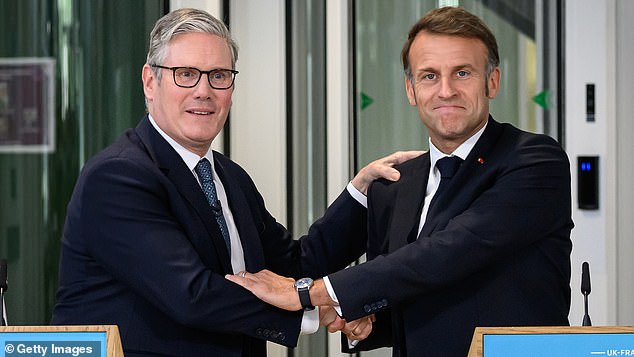
Starmer has embraced ID cards after Emmanuel Macron demanded he tackle the ‘pull factors’ encouraging migrants to cross the Channel
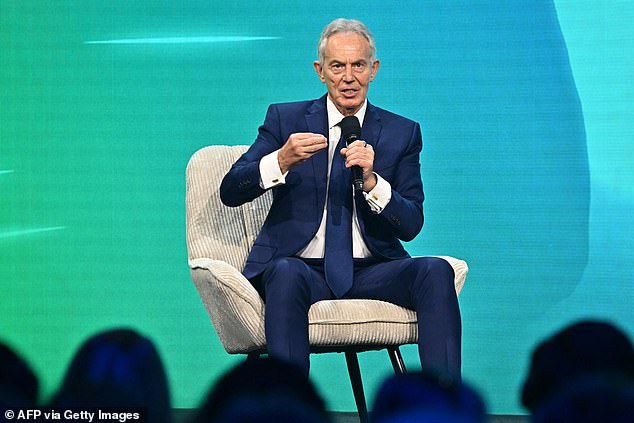
Tony Blair has been pushing his plan for digital ID cards with ministers behind the scenes
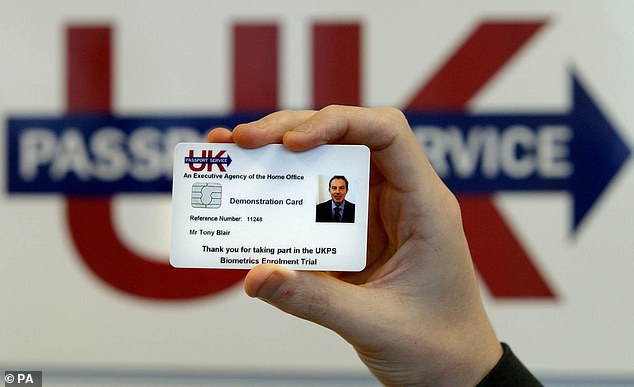
Tony Blair has been trying to introduce compulsory ID cards for 20 yards but faced opposition on civil liberties grounds
Asked if the idea could eventually mean compulsory ID cards for all, he said: ‘We are willing to look at what works when it comes to tackling illegal migration.’
Questioned about the civil liberties row that ended the last bid to introduce compulsory ID cards, the spokesman said ministers believed ‘the debate has changed since the last time we had this discussion’ with people more relaxed about the idea of having to prove their identity online.
The move came as Yvette Cooper claimed there was ‘no alternative’ to Labour’s plan for tackling the small boats crisis, which has seen an increase in Channel crossings of almost 50 per cent this year.
The Home Secretary said Labour had spent its first year ‘putting in place the foundations of a fundamentally different approach’, which she said would eventually pay off.
She insisted that the ‘one in, one out’ deal to return a proportion of Channel migrants of France was proceeding at a ‘really rapid pace’ but she could not guarantee that removals would begin this month.
Ms Cooper dismissed calls to order the immediate removal of those crossing illegally and to suspend the European Convention on Human Rights to speed up the process. She told BBC Radio 4: ‘There is not an alternative with grand promises that fail because that just undermines trust.’
Shadow home secretary Chris Philp hit back: ‘Yvette Cooper’s claim there is no alternative is simply untrue.
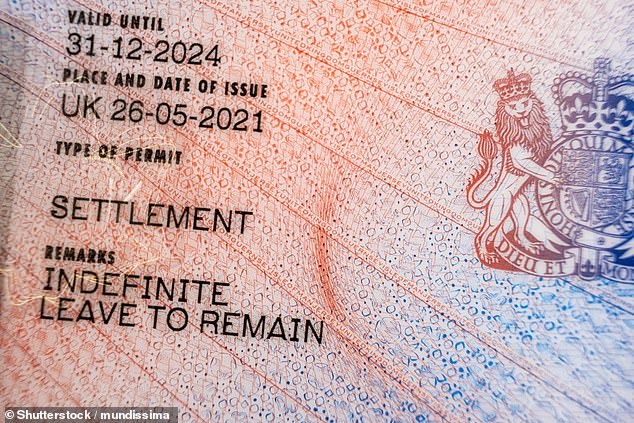
Migrants already have to use e-visas setting out their immigration system, but the new plan could make ID cards compulsory for all (pictured: physical Biometric Residence Permit card once used to prove status)
‘We tabled a Deportation Bill a few weeks ago to end the Human Rights Act for immigration issues and immediately deport all illegal immigrants. But Labour blocked that – and last year they cancelled the Rwanda deportation plan just before it was due to start. There are alternative plans – Labour is just too weak to act on them.’
Proposals for the introduction of digital ID cards were discussed at an emergency meeting chaired by Sir Keir aimed at accelerating work to shut down the UK’s 200 migrant hotels.
The PM’s spokesman said Sir Keir had told the Cabinet: ‘It was easy to understand the frustration people feel at the level of illegal crossings and the sight of asylum hotels in their communities, and that he would be chairing a ministerial meeting to consider how we can go further and faster to combat illegal crossings.
‘This includes continuing to work with the French authorities, cracking down on pull factors and illegal working – including exploring options around digital ID – accelerating the closure of hotels and looking at better forms of accommodation, and driving progress returning people with no right to be here.’
France issues a national ID card but it is not compulsory for people to carry it at all times as other official documents are acceptable.
Ministers are examining similar digital ID systems in other countries, including Estonia where citizens are given a state-issued email address for official communications and required to have a card carrying their picture and national identity number.
Cabinet Office minister Pat McFadden, who is leading work on the idea, visited the Baltic state at the weekend to study the scheme.
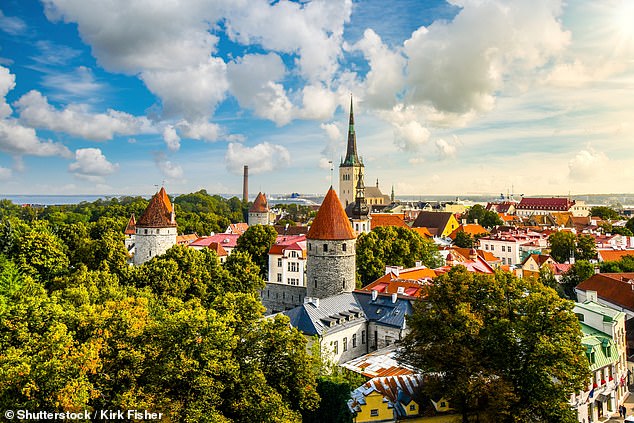
Ministers are studying a scheme in Estonia which requires all citizens to have a digital ID card carrying their picture and national identity number in order to work or access services

Cabinet Office minister Pat McFadden has enthused about ID cards since visiting Estonia to discuss how the scheme would work in practice
On his return, he insisted it made sense to look at replacing the ‘multiplicity of paper-based documents’ now used to verify ID, such as utility bills and driving licences.
He added: ‘The idea you’ve got to prove who you say you are in order to work is a reasonable expectation. France has talked about pull factors in the context of migration. If there are pull factors like that, we should deal with them.’
Mr Blair pushed to introduce digital ID cards but the scheme was scrapped by the incoming Coalition government in 2010.
Whitehall sources said the PM used an emergency meeting on immigration yesterday to urge ministers to pursue ‘all’ options for tackling the crisis.
Options discussed are said to have included stepping up efforts to secure more returns deals, closing asylum hotels, tightening interpretation of the ECHR and cracking down on illegal working.











